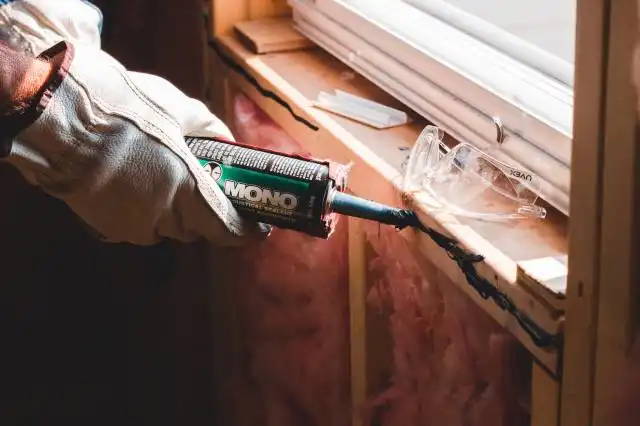Start a Medical Supply Company
Becoming the Backstage Hero of Healthcare: Your Own Medical Supply Company
| Updated


MEDICAL SUPPLY COMPANY
Time to get in the business of health and lifesaving, my friend! A Medical Supply Company is pretty much as it sounds - a business that specializes in selling everything from surgical gloves, devices and equipment to hospitals and mini first-aid kits to the general public. Picture your operation as the "backstage" to every successful medical show, supplying the tools for the heroes in scrubs. This venture is not only going to generate income, but allow you to play a vital role in the healthcare industry.
Jump to Business Plan
RELATED BUSINESS IDEAS
Browse ALL Retail & Shopping Business Ideas
Discover Your Perfect Domain
Unlock the door to your online success with our hand-picked selection of premium domain names. Whether you're starting a new venture or rebranding an existing one, the right domain can set the tone for your digital presence. Browse through our curated list, each with its unique potential to enhance your brand's visibility and credibility.
MEDICAL SUPPLY MINI BUSINESS PLAN
This a quick reality check to help you identify the strengths and weaknesses of your business concept before you dive in.
Business Idea: Medical Supply Company
Expected Percent Margins:
- Gross Margin: 30-45%
- Net Profit Margin: 10-20%
Earnings Expectations:
- Daily Earnings: $350 - $850 (Assuming around 25-60 sales per day)
- Weekly Earnings: $2,450 - $5,950
- Monthly Earnings: $10,500 - $25,500
- Annual Earnings: $126,000 - $306,000
Actions to Hit Those Numbers:
Product Offering & Pricing:
- Inventory: Stock a diverse range of medical supplies that cater to hospitals, clinics, and individual needs.
- Pricing Strategy: Follow a competitive pricing strategy to attract and retain customers.
Customer Acquisition & Retention:
- Relationship Building: Establish strong relationships with healthcare providers to ensure repeat orders.
- Customer Service: Provide excellent customer service, including fast delivery and hassle-free returns.
Operational Efficiency:
- Inventory Management: Implement efficient inventory management systems to prevent stock-outs and overstocking.
- Cost Control: Regularly review operational and product costs to identify potential savings.
Marketing & Promotion:
- Online Marketing: Regularly update your website and use social media for marketing and customer engagement.
- Local Advertising: Consider local advertising targeted at healthcare providers
Compliance:
- Licenses and Permits: Stay updated on the required licenses and permits and comply with all healthcare regulations.
- Supplier Compliance: Ensure that your suppliers are also in compliance with industry and safety standards.
Remember, these estimates are based on averages and your actual results may vary. Always consult with a financial advisor for personalized business advice.
NOT WHAT YOU HAD IN MIND? Here are more ideas



Browse ALL Retail & Shopping Business Ideas
Grab Your Business Website Name
Before you get caught up in the whirlwind of setting up your business, invest in a domain name. It's a small but significant step that lays the foundation for your brand and makes it easier for customers to find and trust you. Just like you wouldn't build a house without securing the land first, don't build a business without securing your domain name.
"Why? Can't that wait?" Here's why it shouldn't
Starting a home health medical supply store business can be a great way to provide a valuable service to your community. It can also be a lucrative endeavor, as the demand for medical supplies is ever-increasing. However, starting a business of this kind requires careful planning and research. This article will provide an overview of the nine steps needed to start a home health medical supply store business, including determining if the business is the right endeavor, naming the business, and understanding the startup and ongoing expenses. With the right preparation and dedication, you can be well on your way to starting a successful home health medical supply store business.
Determining if the Business is Right for You
Breakdown of Startup Expenses
Before starting a home health medical supply store business, it is important to understand the startup expenses. This includes the cost of renting a space, purchasing inventory, hiring employees, and obtaining any necessary licenses or permits. Additionally, it is important to consider the cost of marketing and advertising, as well as any technology that may be needed to run the business. It is also important to consider the cost of insurance and any other fees associated with the business.
Breakdown of Ongoing Expenses
In addition to startup expenses, it is important to consider the ongoing expenses associated with running a home health medical supply store business. This includes the cost of rent, utilities, inventory, and employee wages. Additionally, it is important to consider the cost of marketing and advertising, as well as any technology that may be needed to run the business. It is also important to consider the cost of insurance and any other fees associated with the business.
Examples of Ways to Make Money
When starting a home health medical supply store business, it is important to consider the various ways to make money. This includes selling medical supplies, providing services such as delivery, and offering additional services such as medical advice or health screenings. Additionally, it is important to consider the potential for selling products online or through other retail outlets. Finally, it is important to consider the potential for partnering with other businesses to increase sales and profits.
Naming the Business
When naming a business, it is important to consider the name’s relevance to the industry, its memorability, and its potential for future growth. It is also important to consider the potential for trademark infringement, as well as the availability of domain names and social media handles. To ensure the name is unique, it is important to research the name with the U.S. Patent and Trademark Office, as well as the Secretary of State’s office. Additionally, it is important to consider the potential for a logo or tagline to accompany the name.
When selecting a name, it is important to consider the target audience and the message the name should convey. For a home health medical supply store business, a name should be professional and convey a sense of trust and reliability. It is also important to consider the potential for a tagline or slogan to accompany the name. A tagline can help to further explain the business’s mission and values.
Once a name has been selected, it is important to register the business with the Secretary of State’s office. This will ensure that the business is legally registered and that the name is not already in use. Additionally, it is important to register the business with the IRS and obtain an Employer Identification Number (EIN). This will allow the business to open a business bank account and apply for business licenses and permits.
Finally, it is important to register the business name with the U.S. Patent and Trademark Office. This will ensure that the name is legally protected and that no other business can use the same name. Additionally, it is important to register the domain name and social media handles for the business. This will ensure that the business has a strong online presence and that potential customers can easily find the business online.
Obtaining the Necessary Licenses and Permits
The fourth step in starting a home health medical supply store business is to obtain the necessary licenses and permits. Depending on the state, there may be a variety of licenses and permits required to operate a business. In addition to a business license, a home health medical supply store may also need to obtain a permit to sell medical supplies. It is important to research the local laws and regulations to determine what licenses and permits are required.
In some cases, a home health medical supply store may need to obtain a special license to sell certain types of medical supplies. For example, a store that sells prescription drugs may need to obtain a special license from the state's pharmacy board. Additionally, a store that sells medical equipment may need to obtain a special license from the state's medical board. It is important to research the local laws and regulations to determine what licenses and permits are required.
In addition to obtaining the necessary licenses and permits, it is also important to obtain liability insurance. Liability insurance can help protect the business from potential lawsuits and other legal issues. It is important to research the different types of insurance available and find a policy that meets the needs of the business.
Finally, it is important to keep all licenses and permits up to date. It is important to check with the local government periodically to make sure that all licenses and permits are still valid. Additionally, it is important to renew any licenses and permits as needed. Keeping all licenses and permits up to date is essential for the success of the business.
Finding a Suitable Location
Finding a suitable location for a home health medical supply store is a crucial step in starting a business. It is important to consider the size of the store, the type of customers it will serve, and the competition in the area. It is also important to consider the cost of renting or buying a property. When looking for a location, it is important to consider the amount of foot traffic, the visibility of the store, and the availability of parking. Additionally, it is important to make sure the store is easily accessible for customers and that it is in a safe area.
When looking for a suitable location, it is important to research the local zoning laws and regulations. It is also important to make sure the store is in compliance with all local, state, and federal laws. Additionally, it is important to research the local economy and the demographics of the area to make sure the store will be successful. Finally, it is important to make sure the store is located in a place where customers will be able to find it easily.
Setting Up the Store
Purchasing Necessary Equipment
When setting up a home health medical supply store, it is important to purchase the necessary equipment to ensure the store runs smoothly. This includes items such as computers, printers, scanners, cash registers, shelving, and display cases. It is important to research the different types of equipment available and determine which ones are best suited for the store. Additionally, it is important to consider the cost of the equipment and how it fits within the budget. It is also important to consider the maintenance and repair costs associated with the equipment.
Hiring Employees
When setting up a home health medical supply store, it is important to hire employees who are knowledgeable about the products and services offered. This includes hiring employees with experience in customer service, sales, and inventory management. It is important to consider the qualifications of the employees and the cost associated with hiring them. Additionally, it is important to create a job description for each position and provide training for the employees. It is also important to consider the cost of benefits for the employees, such as health insurance, vacation time, and other benefits.
Developing a Business Plan
A business plan is a crucial step in starting any business, and a home health medical supply store is no exception. A business plan should include a detailed description of the business, including its purpose, goals, and objectives. It should also include a detailed analysis of the market, including an assessment of the competition and an analysis of the potential customer base. Additionally, the business plan should include a financial plan, including startup costs, ongoing expenses, and projected revenues. Finally, the business plan should include a marketing plan, including strategies for advertising and promotion. Developing a comprehensive business plan is essential for the success of any business venture.
Advertising and Promoting the Business
Advertising and promoting the business is essential for success. It is important to create a marketing plan that outlines the strategies and tactics that will be used to reach potential customers. This plan should include a budget for advertising and promotional activities. It is also important to consider the use of digital marketing, such as social media, to reach a wider audience. Additionally, it is important to consider the use of traditional marketing methods such as print and radio advertising. It is also important to consider the use of promotional items, such as t-shirts, mugs, and pens, to help spread the word about the business. Finally, it is important to consider attending local events and trade shows to help promote the business.
EXPLORE MORE CATEGORIES
Browse ALL Business Idea Categories
TAKE THE NEXT STEPS










